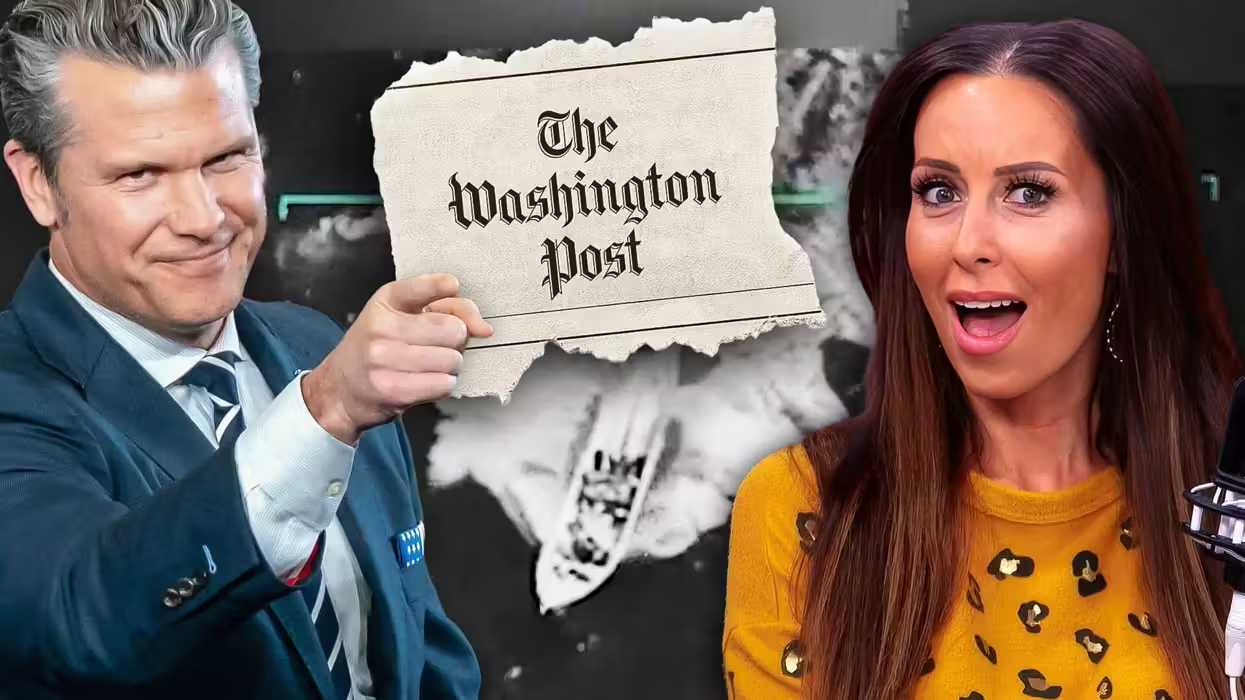
© 2025 Blaze Media LLC. All rights reserved.
Website Gawker Publishes Huge Cache of Confidential Bain Capital Documents -- But are They Actually 'Worthless'?
August 23, 2012
"Gawker has posted tons of smoke without any fire." -- UPDATE: Gawker has its own offshore accounts. --
 Gawker's John Cook on Thursday published a massive cache of "confidential internal financial" documents that, he says, may shed some light on Republican presidential hopeful Mitt Romney's tax-avoidance schemes.
Gawker's John Cook on Thursday published a massive cache of "confidential internal financial" documents that, he says, may shed some light on Republican presidential hopeful Mitt Romney's tax-avoidance schemes.
But Fortune senior editor Dan Primack says Gawker's huge dump is much ado about nothing.
However, before another word on the subject is said, it should be noted that neither the folks at POLITICO nor the folks at Gawker (nor this author) fully understand everything in these documents.
“These documents -- not all of which are new -- will require a great deal of vetting,” writes POLTICO’s Dylan Byers, eagerly adding that early "signs indicate that there are some new, and potentially controversial, details."
“The documents are exceedingly complicated. We don't pretend to be qualified to decode them in full, which is why we are posting them here for readers to help evaluate -- please leave your thoughts in the discussion below,” Gawker’s John Cook writes.
That being said, is there anything of particular interest in the doc-dump? That is, were the folks at Gawker able to dig up any damning evidence against Romney?
Well, there's this: Romney was given a stake in Sankaty Credit Opportunities L.P. as part of his retirement package in 1999. However, and this is a bit strange, Sankaty Credit Opportunities didn't exist until 2002, according to Romney’s 2012 financial disclosure.
"In other words, Romney's 1999 retirement agreement included an investment in an entity created in 2002 -- in fact, was created in the heat of his first gubernatorial campaign in Massachusetts," Cook writes. "When Romney explained at an October 29, 2002, debate in Massachusetts that he wasn't responsible for Bain's actions after his 1999 retirement, it was just 8 weeks after the creation by Bain of a fund that was part of his retirement agreement."
You know what this means, right? This means the “When Did Romney Really Retire?” game may be back in play.
Anyway, Cook is pretty confident that they’ve hit the motherload (although they’re not sure what, exactly, they’re looking at) and claims the cache reveals:
…the mind-numbing, maze-like, and deeply opaque complexity with which Romney has handled his wealth, the exotic tax-avoidance schemes available only to the preposterously wealthy that benefit him, the unlikely (for a right-wing religious Mormon) places that his money has ended up, and the deeply hypocritical distance between his own criticisms of Obama's fiscal approach and his money managers' embrace of those same policies.
But wait, that raises a question: While you may not approve of Romney’s wealth or how he has invested it, do the docs actually reveal any specific wrongdoing? Here’s the thing: After a cursory overview (emphasis on overview) of the documents, this author was unable to find anything particularly damaging.
And don't take our word for it. Fortune’s senior editor Dan Primack says Gawker is simply wasting its breath.
 “I saw many of the exact same documents months ago, after requesting them from a Bain Capital investor. What I quickly learned was that there was little of interest, except perhaps for private equity geeks who want to know exactly how much Bain paid for a particular company back in 2006,” writes Primack.
“I saw many of the exact same documents months ago, after requesting them from a Bain Capital investor. What I quickly learned was that there was little of interest, except perhaps for private equity geeks who want to know exactly how much Bain paid for a particular company back in 2006,” writes Primack.
“Sure I would have loved the pageviews, but not at the expense of tricking readers into clicking on something of so little value,” he adds.
Ouch. He goes on to critique and/or correct each of Gawker’s possible "finds" including:
- Bain's Cayman Islands accounts: "the reality is that most private equity firms form Cayman-domiciled funds to accommodate investors based outside of the United States (particularly when those funds also are making some non-U.S. investments)."
- The fact that Romney's retirement package involves companies created after he left Bain in 1999: "[H]is retirement package provided Romney with ownership positions in Bain funds raised for 10 years after he left the firm (plus the ability to co-invest his own money). This isn't breaking news (mentioned here, for example)."
- On the "mystery" surrounding Romney's holdings: "There actually is plenty of data on Romney's Bain-related holdings. For example, Bain's own website lists most of its active private equity portfolio companies. Then there are third-party databases operated by such organizations as Dow Jones, Thomson Reuters and CapitalIQ -- each one of which includes searchable lists of past Bain Capital deals (often with detailed financial information)."
“I totally understand why a stack of papers marked ‘confidential’ seems exciting, particularly for those without a deep understanding of private equity. And I'm not taking any position on if Romney did or didn't duck taxes at some point, either related or unrelated to Bain holdings. All I'm saying is that Gawker has posted tons of smoke without any fire,” Primach adds.
UPDATE -- As noted by National Review's Kevin D. Williamson, there's a huge, glaring irony in Gawker breathlessly reporting on Bain's Cayman accounts [via John Cassidy of the The New Yorker]:
Much of [Gawker's] international revenues are directed through Hungary, where [bossman Nick] Denton’s mother hails from, and where some of the firm’s techies are located. But that is only part of it. Recently, [Felix] Salmon reports, the various Gawker operations -- Gawker Media LLC, Gawker Entertainment LLC, Gawker Technology LLC, Gawker Sales LLC -- have been restructured to bring them under control of a shell company based in the Cayman Islands, Gawker Media Group Inc.Why would a relatively small media outfit based in Soho choose to incorporate itself in a Caribbean locale long favored by insider dealers, drug cartels, hedge funds, and other entities with lots of cash they don’t want to advertise? The question virtually answers itself, but for those unversed in the intricacies of international tax avoidance Salmon spells it out: “The result is a company where 130 U.S. employees eat up the lion’s share of the the U.S. revenues, resulting in little if any taxable income, while the international income, the franchise value of the brands, and the value of the technology all stays permanently overseas, untouched by the I.R.S.”
So, yes: Gawker just published a story "tsk-tsking" Romney for managing his money the same way Gawker manages its own money.
Follow Becket Adams (@BecketAdams) on Twitter
Want to leave a tip?
We answer to you. Help keep our content free of advertisers and big tech censorship by leaving a tip today.
Want to join the conversation?
Already a subscriber?
more stories
Sign up for the Blaze newsletter
By signing up, you agree to our Privacy Policy and Terms of Use, and agree to receive content that may sometimes include advertisements. You may opt out at any time.
Related Content
© 2025 Blaze Media LLC. All rights reserved.
Get the stories that matter most delivered directly to your inbox.
By signing up, you agree to our Privacy Policy and Terms of Use, and agree to receive content that may sometimes include advertisements. You may opt out at any time.






